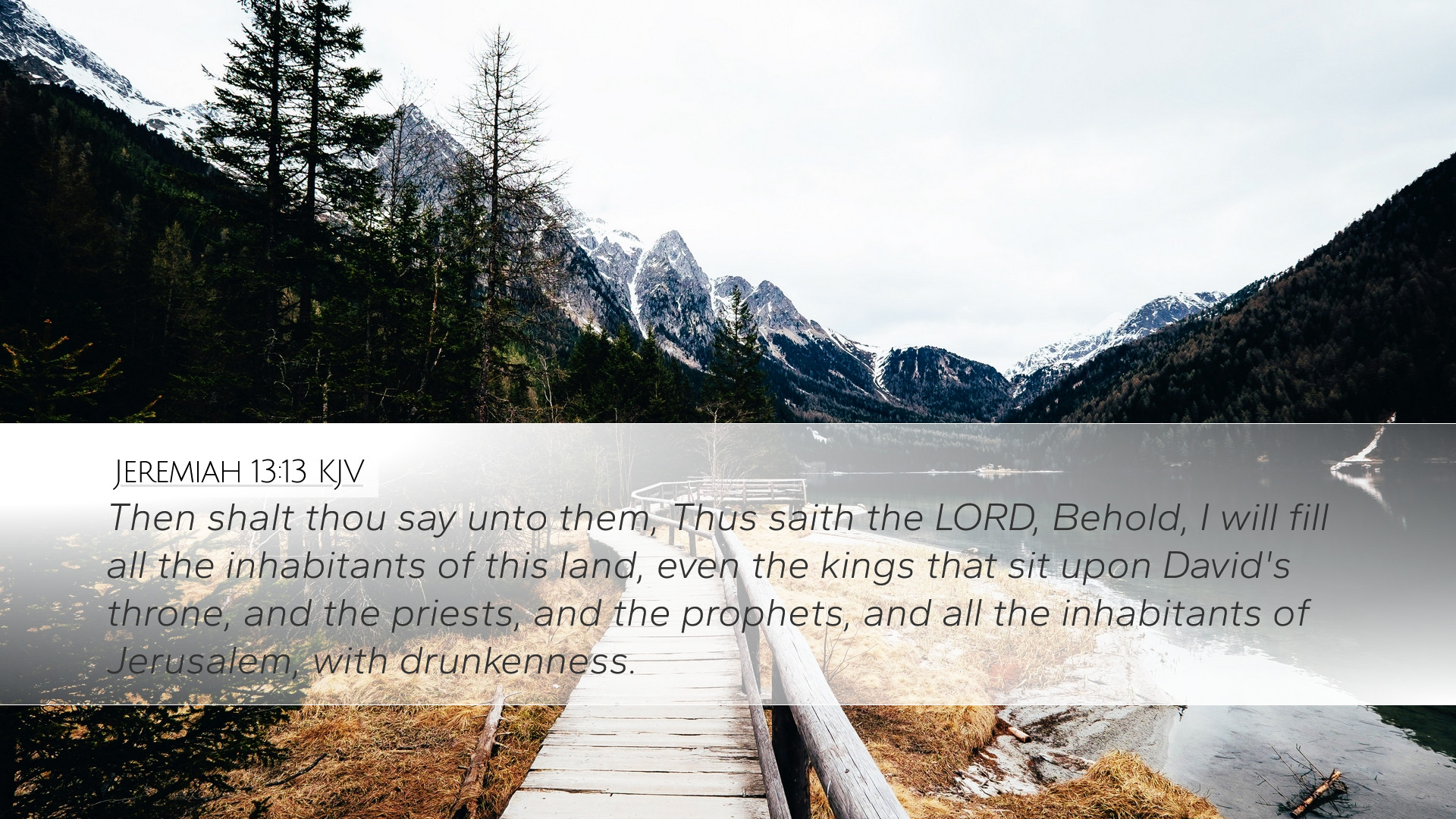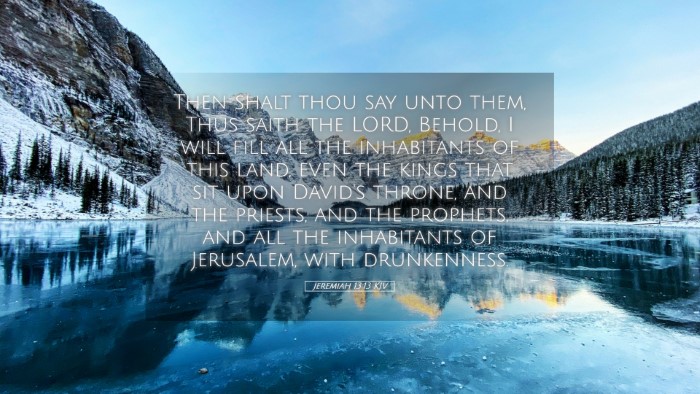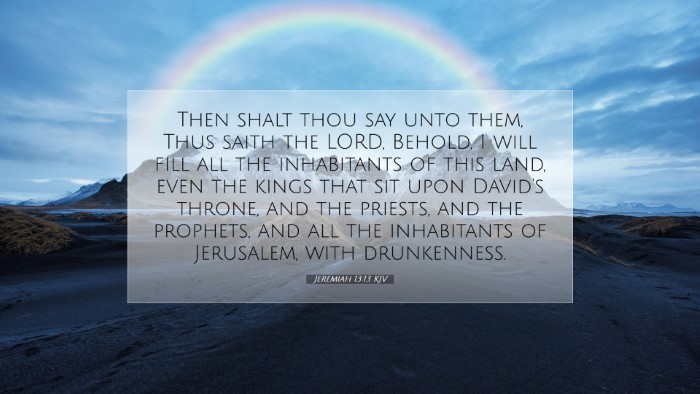Commentary on Jeremiah 13:13
Text of Jeremiah 13:13: "Then shalt thou say unto them, Thus saith the Lord God of Israel, Every bottle shall be filled with wine: and they shall say unto thee, Do we not certainly know that every bottle shall be filled with wine?"
Introduction
This verse from the book of Jeremiah reflects a metaphor that carries deep implications for understanding the nature of God's judgment and the state of Israel's faithfulness. Jeremiah, known as the "weeping prophet," employs vivid imagery to communicate divine truth. This commentary synthesizes insights from classic sources, highlighting theological significance for contemporary readers.
Contextual Overview
The underlying theme in Jeremiah is the covenant relationship between God and Israel, which is marred by idolatry and sin. The prophet is tasked with delivering messages of warning and impending judgment. In this particular verse, God uses the illustration of wine bottles, symbolizing both the fullness of God's intentions and the consequences of disobedience.
Metaphorical Analysis
1. Symbol of Wine: The mention of wine in ancient Israel signifies not only joy and celebration but also the effects of God's judgment. As Albert Barnes notes, wine commonly represents an abundance of blessings, yet in Jeremiah's context, it correlates with the imminent danger of destruction faced by those who turn away from God.
2. Bottles as Mediums: Matthew Henry elaborates on the significance of bottles as containers of either blessings or judgments. The imagery of being filled suggests complete indulgence in either preservation of God's grace or the looming wrath due to disobedience.
Theological Implications
This passage poses several questions for theological reflection:
- God’s Sovereignty: The statement "Thus saith the Lord" emphasizes the authority of God's word to convey certainty and inevitable truth. The affirmation of every bottle being filled reflects the absolute nature of God's declarations.
- Human Response: The expected retort from the people, "Do we not certainly know," indicates a complacency rooted in familiarity. As Adam Clarke points out, this familiarity could lead to a dangerous assumption about divine mercy, interpreting God's patience as approval.
Application for Contemporary Readers
For pastors, students, and theologians, this verse serves as a practical reminder of the seriousness of covenant faithfulness. In ministry and teaching, it underscores the importance of illustrating God's warnings through relatable metaphors while also encouraging congregants to engage earnestly with their faith.
Conclusion
Jeremiah 13:13 serves as a potent reminder of the duality of God's nature—His judgment and His desire for His people to return to Him. In understanding the prophetic messages through metaphor, readers can glean deeper insights into their relationship with God, encouraging a faithful walk in awareness of the gravity of spiritual complacency.


